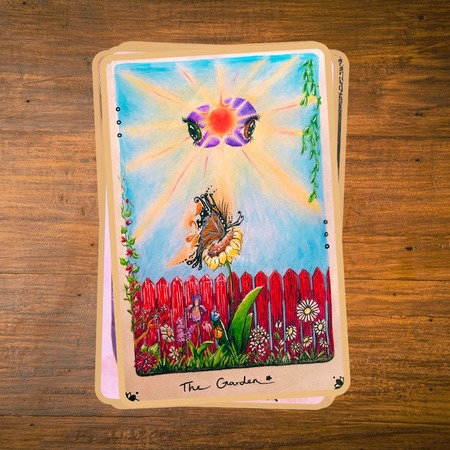
Jeremy Parsons’ single, “The Garden,” is a beautifully cultivated piece that intertwines poignant lyrical themes with tender melodies, delivering a profound yet accessible examination of mental health and personal growth. Rooted in his own upbringing and experiences, Parsons crafts a song that resonates on multiple levels, inviting listeners to reflect on their own emotional landscapes.
Parsons grew up steeped in the world of horticulture, guided by his father, Dr. Jerry Parsons, a renowned Texas horticulturist. This intimate connection with gardening serves as the fertile ground from which “The Garden” blooms. The song pays homage to his father’s passion while exploring the metaphorical parallels between tending to a garden and nurturing one’s mental health. The vivid imagery of gardens thriving or withering based on care and attention becomes a powerful allegory for emotional well-being.
The lyrics of “The Garden” are a heartfelt exploration of the human condition, weaving together observations about growth, resilience, and care. Parsons opens with a reflective query:
“Yeah tell me what’s growing there in your garden
Does it wither when you’re feeling blue
Yeah I see from where I am that your garden is thriving
And I hope that means you are too
Yeah I hope that means you are too”
This opening sets the tone for the rest of the song, encapsulating the intricate connection between the state of one’s garden and one’s mental health. The repeated hope that a thriving garden indicates a thriving self is a gentle reminder of the importance of self-care.
Musically, “The Garden” is a delicate balance of folk and country, with a soothing melody that complements its reflective lyrics. Parsons’ voice carries a genuine warmth and sincerity, drawing listeners into his narrative. The arrangement is understated yet effective, allowing the song’s message to take center stage. Acoustic guitars strum gently, creating a sonic backdrop that feels both intimate and expansive.
The song is deeply personal, drawing from Parsons’ own experiences and observations. The mention of his Nashville neighbor, Brielle, who tends to her garden with diligence and care, serves as a real-life muse for the song’s themes. Her dedication to her garden becomes a mirror reflecting Parsons’ own introspections about life and mental health. This personal touch adds authenticity to the song, making it relatable and heartfelt.
While “The Garden” is rooted in Parsons’ specific experiences, its themes are universal. The song speaks to anyone who has ever struggled with mental health, resilience, or personal growth. The metaphor of gardening becomes a shared language, a way of understanding the effort it takes to cultivate a thriving life.
“It’s virtuous to say the least
You try and fail and try again
Yeah I hope that you know this it never went unnoticed
Cuz hard work always pays off in the end
Yeah well patience always pays off in the end”
These lines capture the essence of perseverance and patience, qualities necessary for both gardening and life. They remind listeners that growth is a gradual process, marked by both failures and successes.
In “The Garden,” Jeremy Parsons has crafted more than just a song; he has created a moving reflection on life, growth, and mental health. Through evocative lyrics and a soothing melody, Parsons invites listeners to consider the state of their own “gardens” and the care they require. It’s a timely reminder that, much like a garden, our mental well-being needs consistent attention and nurturing.
Parsons’ ability to draw from his personal history and translate it into a universally resonant song is a testament to his talent as a songwriter. “The Garden” is not just an auditory experience but an emotional journey, offering solace and insight. Whether you find yourself thriving or feeling blue, this song encourages a deeper understanding of the delicate balance required to cultivate a healthy and fulfilling life. Jeremy Parsons has indeed sown the seeds for introspection and growth, and “The Garden” is a testament to his artistry and empathy.
